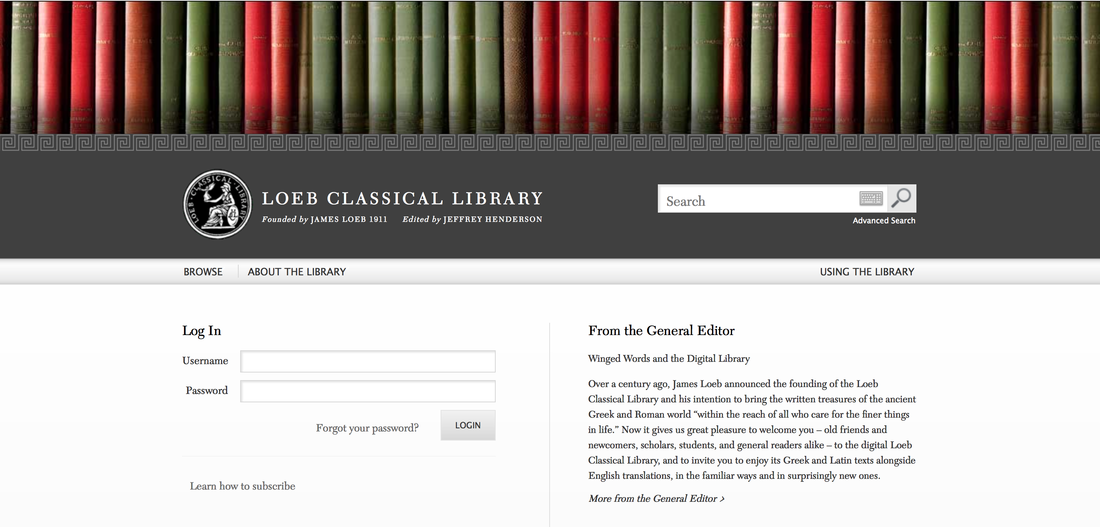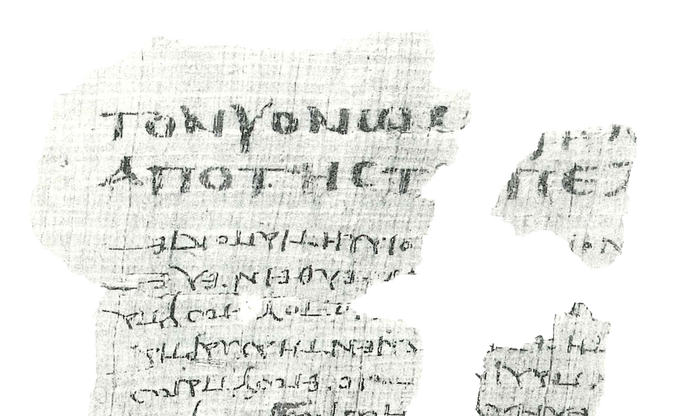|
The Digital Loeb Classical Library has now been officially released! It is available for individual and institutional subscriptions (see intro video here). Individual subscriptions are $195 for the first year and $65 for subsequent consecutive years. This is a bit steep, I know, but I feel it is worth it. How many times have you been in the middle of research and needed a critical Greek or Latin text of a classical author? I have been there many, many times and it is a frustrating experience. We need our Loebs! Now, we have them at the tips of our fingers. It is great to see that the LCL has now gone digital. I hope to post here in future a review of the platform and overall user experience. In the meantime, you can subscribe here.
2 Comments
Here is a snapshot of a marginal note from a New Testament manuscript. Can you identify the manuscript? A couple things to note. The marginal note is upside down and may not have any relationship to the NT text. If you really want to have fun, what do you think this note says? Transcriptions are welcome! Update: Some discussion of this manuscript took place on Facebook, where Edgar Ebojo nailed the identification: this scribal note is found in the lower margin of a folio from P.Bodmer XV (=P75). As for the note itself, Maurice Robinson kindly pointed out that υον is an attested abbreviation for ὑίος (see LSJ s.v.), although it is predominantly found in inscriptions and in an earlier period (Ptolemaic). Paap doesn't have an example of υον being used as a nomen sacrum, and since there is no supralinear stroke we can probably rule this out as being a nomen sacrum. Martin and Kasser restore it as τον υον ως̣ [κ]υ̣ρ̣ι̣ο̣[ν] απο της τ̣[ρα]πεζ̣[ης], but κυριον is not certain. There is another marginal note in P.Bodmer XV written in Coptic, so might the odd υον be explained as Coptic interference of some sort? I have no idea but suggestions are indeed welcome. Look for another "Name That NT Manuscript" post next week!
In Pasquale Orsini and Willy Clarysse's important article “Early New Testament Manuscripts and Their Dates: A Critique of Theological Palaeography” (ETL 88.4 [2012]: 443-474), there is a discrepancy in the date of P.Oxy. 2684 (P78) listed in Table 1 at the end of the article (p. 471): there it is listed as “250-350,” but it should read “400-500,” as described on p. 459. The date for this papyrus in the LDAB (#2802) reflects the date in the table, but Prof. Clarysse—who manages the LDAB—has informed me that this will be corrected very soon.
|
Archives
April 2015
Categories
All
|




